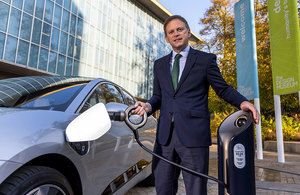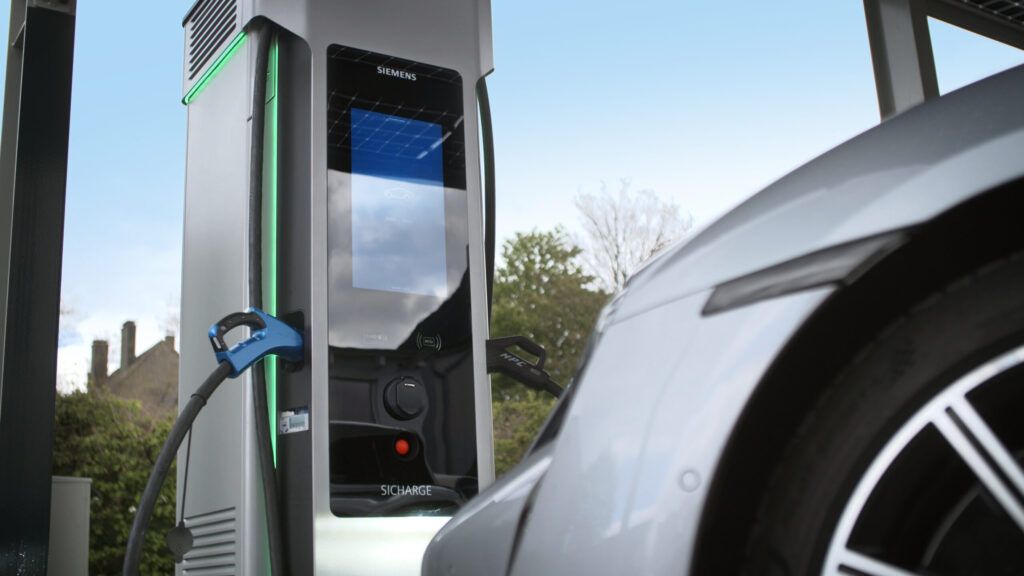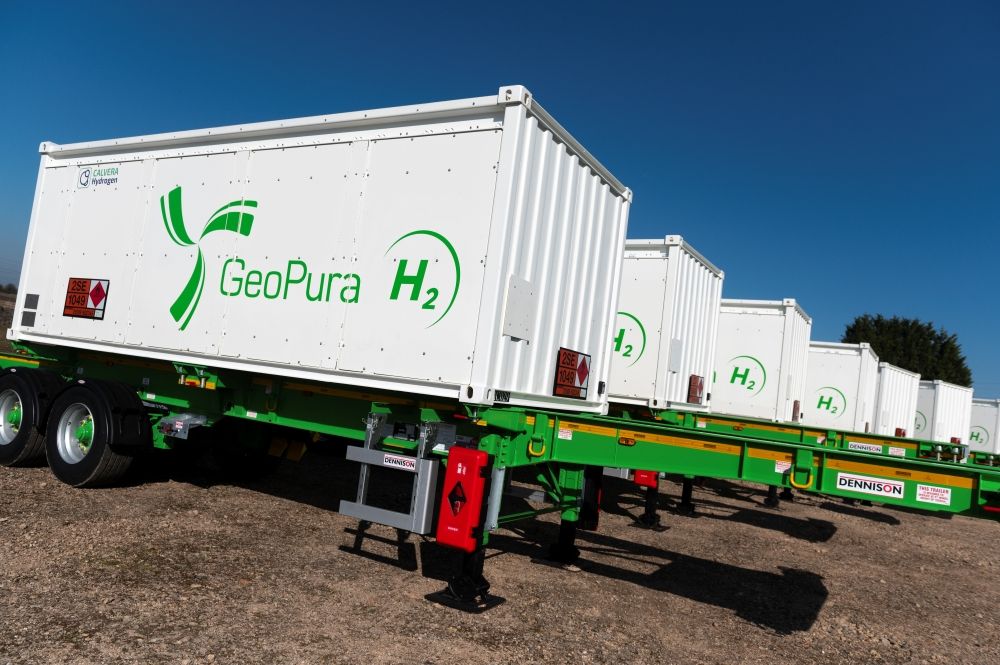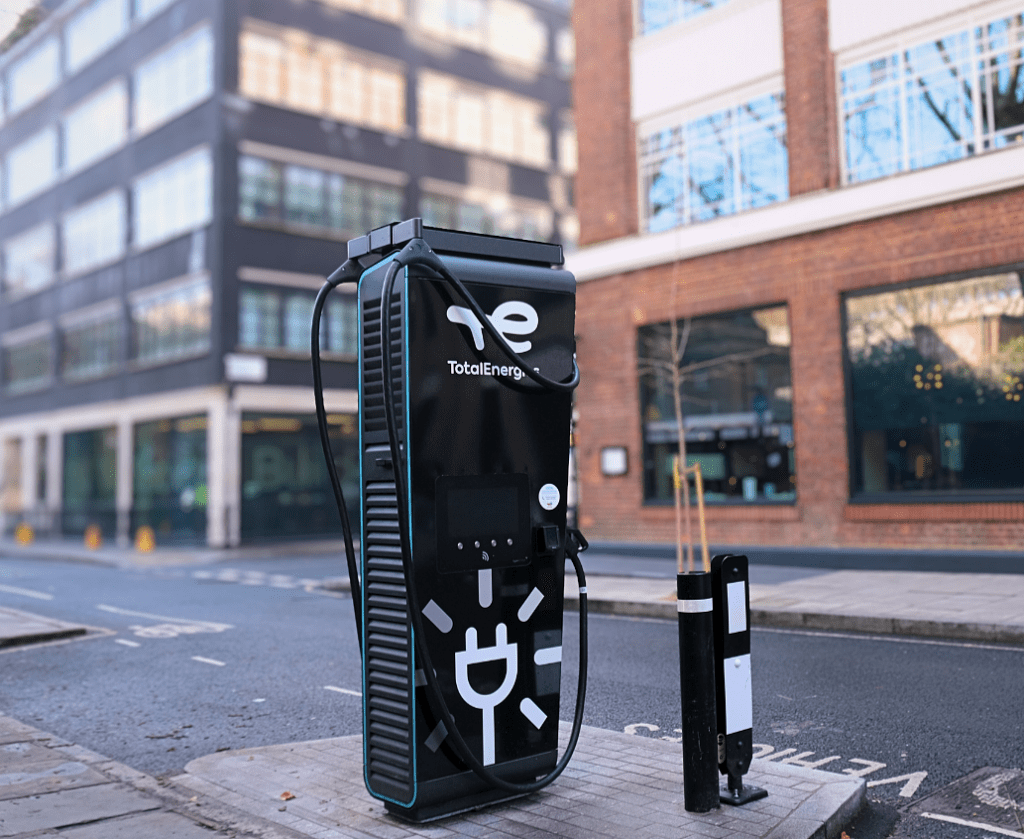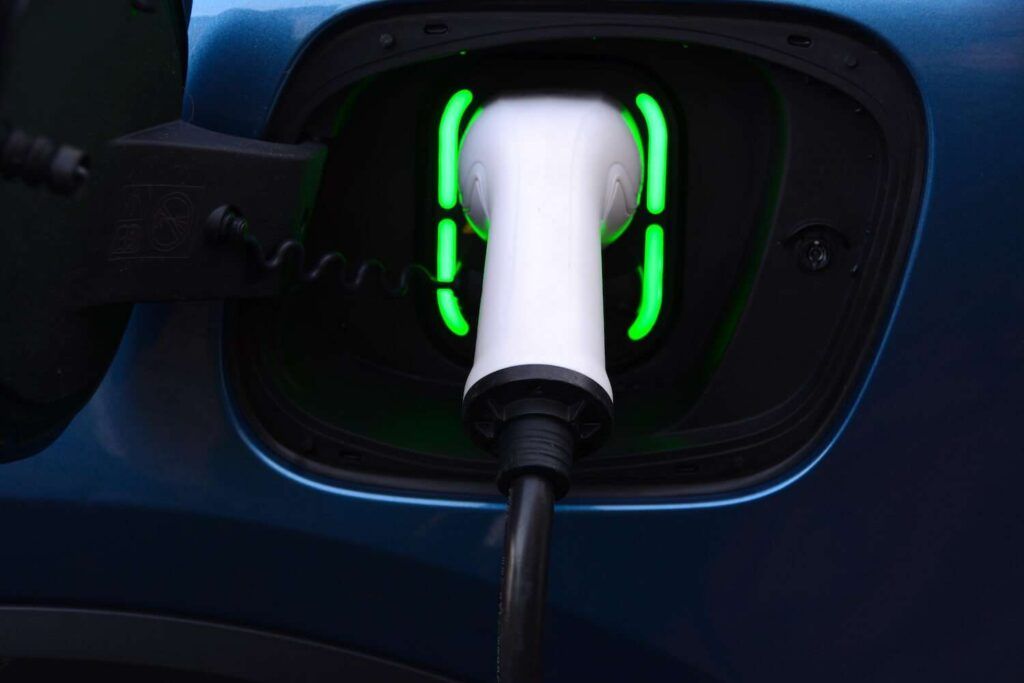All new heavy goods vehicles in the UK will be zero-emission by 2040, the UK government has confirmed today (10 November 2021).
The UK will become the first country in the world to commit to phasing out new, non-zero emission heavy goods vehicles weighing 26 tonnes and under by 2035, with all new HGVs sold in the UK to be zero emission by 2040.
On Transport Day at COP26, the UK government has also unveiled a new design for electric vehicle chargepoints, which the Government says could “become as iconic as the Great British post box, London bus or black cab”. Showcased in the UK Pavilion at COP26 and designed together with the Royal College of Art and PA Consulting, the concept prioritises inclusivity and ease of use, designed with consumers, local government, accessibility groups and industry.
UK Transport Secretary Grant Shapps said: “From our roads to the skies, the transition to zero emission transport has reached a tipping point. We know that transport plays a key role saving the planet from warming above 1.5°C, which is why this is the COP that will kick start our ambition for zero emission aviation and why I’m proud to be uniting world leaders to tackle climate change – creating new opportunities for clean growth, green jobs and improved air quality right across the globe.
“To support the transition to EVs, it’s integral that we have the infrastructure to support it. My vision is for the UK to have one of the best EV infrastructure networks in the world, with excellent British design at its heart.”
New research from Bloomberg New Energy Finance, commissioned by the UK COP Presidency and published today (10 November), shows the progress made in the passenger vehicle market:
- 31% of the global passenger vehicle market is now covered by vehicle manufacturer commitments to end sales of fossil fuel-powered vehicles, up from a near zero share of the market at the start of 2021
- global sales of zero emission vehicles (ZEVs) have grown dramatically since 2019 from 2.1 million to 5.3 million
- ZEVs are forecast to be 70% of all new car sales in 2040, with this projection having doubled in the last 5 years
- 19% of 2020 passenger vehicles sales were in countries that now have an internal combustion engine (ICE) phase-out date, up from 5% in 2019
A group of ministers and industry leaders committed to working towards 100% zero emission new car and van sales by 2040 or earlier at Transport Day at COP26. Twenty four countries, 6 major vehicle manufacturers (GM, Ford, Mercedes, BYD, Volvo, JLR), 39 cities, states and regions, 28 fleets and 13 investors all jointly set out their determination for all new car and van sales to be zero emission by 2040 globally and 2035 in leading markets.
In this group, companies like Sainsbury’s and countries including Uruguay, El Salvador and New Zealand are today making new commitments to 100% zero emission vehicles. They follow proposals made by the EU, Chile, Canada and a number of US states this year to ensure all new cars are zero emission by 2035. Also announced today, a number of emerging markets and developing economies have committed to work to accelerate the adoption of zero emission vehicles in their markets, including India, Ghana, Kenya, Paraguay, Rwanda and Turkey.
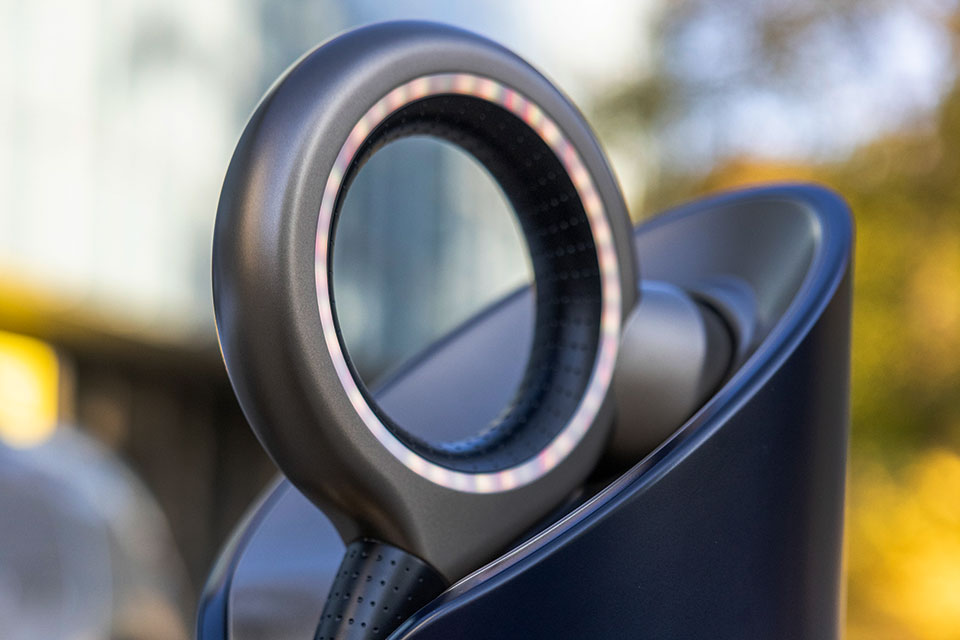
The chargepoint design concept (pictured above) will provide greater choice to industry and local government, as well as raise awareness and generate excitement around electric vehicles, as we build one of the most convenient, affordable and reliable charging networks in the world.
As one of the new Glasgow Breakthroughs launched by the Prime Minister at the World Leaders Summit, 30 countries have agreed to work together to make zero emission vehicles the new normal by making them accessible, affordable, and sustainable in all regions by 2030 or sooner.
This goal is guiding the Zero Emission Vehicle Transition Council (ZEVTC), which will today meet with distinguished representatives, including experts on the transition in emerging markets and developing economies, to discuss how international collaboration can support a global transition. The council will launch its first annual action plan, which sets out areas for sustained international cooperation to accelerate the transition during 2022. Also announced today, the US will join the UK as co-chair of the ZEVTC, reflecting the council’s growing ambition over the coming years.
Several initiatives are being launched today to help ensure a global and equitable transition to ZEVs and support the acceleration of transport decarbonisation. This includes the World Bank’s Global Facility to Decarbonise Transport – a multi-donor trust fund that will mobilise US$200 million over the next 10 years to support the decarbonisation of road transport in emerging markets and developing economies in the Global South. Today, the UK announced a £4 million initial contribution to the fund, which will support these countries to accelerate the decarbonisation of transport and build greener and more resilient economies.
Seventeen states from across the world, representing over 40% of global aviation emissions, have also today committed to work together to achieve an ambitious new aviation decarbonisation target through the International Civil Aviation Organization, as part of a new International Aviation Climate Ambition Coalition. Together with the World Economic Forum and other governments, the UK is also leading efforts to accelerate the global uptake of scale up sustainable aviation fuels.
Nineteen governments have also stated their intent to support the establishment of green shipping corridors – zero-emission shipping routes between 2 ports. This will involve deploying zero-emission vessel technologies and putting alternative fuel and charging infrastructure in place in ports to allow for zero emission shipping on key routes across the globe. This could in turn mean that taking a zero emission ferry could be part of our holidays, or that everyday household goods, including food and clothes, could soon arrive on zero emission ships.
Twenty eight offshore wind industry stakeholders have committed to work together toward making zero emission operations and maintenance vessels a reality in the North Sea by 2025.
British Vehicle Rental and Leasing Association (BVRLA) Chief Executive, Gerry Keaney, said:
“Today’s announcement is a welcome update and will support the industry in its drive towards decarbonisation. BVRLA members are already leading the way in making positive changes and it’s vital that regulations acknowledge the different challenges experienced from one vehicle type to another.
“Use cases of HGVs vary significantly, so we welcome the government’s intention to consult on derogations that will enable a fair and achievable transition. The BVRLA looks forward to working with the government on the delivery plan that will be essential in ensuring the UK road transport network can be decarbonised successfully.
“The approach must be comprehensive, particularly around HGVs where the barriers remain huge. The recent funding that was announced to support trials of zero emission technology for the sector is a very positive step, and we eagerly await the clarity this will bring to help meet the phase-out dates.”
Olly Craughan, Head of Corporate Social Responsibility at DPDgroup UK Ltd said: “We totally support the withdrawal of the selling of new, non-zero emission HGVs in the UK by 2035, as we do the sale of new diesel/petrol final mile fleet vehicles by 2030. We would urge all parties involved in the supply of alternative green HGVs to press the fast forward button on their development plans so businesses like ourselves can make the transition as soon as possible.
“DPD is one of the brands leading the way on the decarbonisation of fleets but bringing down the cost of green HGVs and creating adequate supply will be essential to the UK hitting this target.”
Graeme Cooper, Head of Future Markets at National Grid, told Transport + Energy: “While trucks only account for 1% of road traffic, after cars and vans HGVs are the highest emitter, contributing 18% of UK transport emissions. So it is essential that there is a clear plan to reduce emissions with clear targets & milestones both nationally and locally. The target to end the sale of the largest diesel trucks (26 tonnes and above) by 2040 and the majority of diesel trucks (26 tonnes and below) by 2035 is a positive step in the right direction. While there might be uncertainty as to which technology is best for clean HGVs, this timeline enables us to take low regrets actions now, such as investing in energy infrastructure ahead of need, planning the deployment of infrastructure, and aligning investment with other transport sectors such as the EV rapid charging network.”
Images courtesy of DfT.




